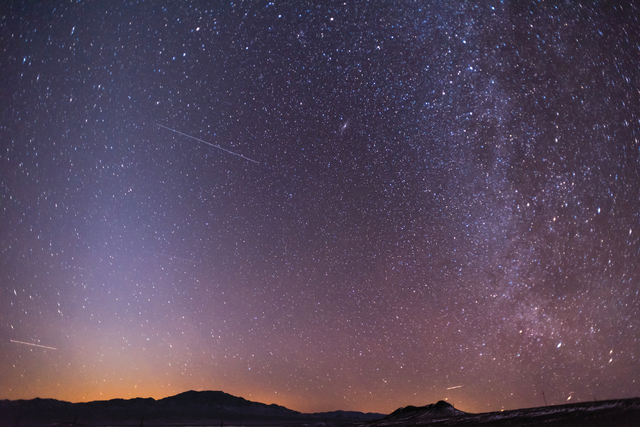
Milky Way as viewed in Tonopah. (Courtesy: Las Vegas Review-Journal)
(Margo Bartlett Pesek, Las Vegas Review-Journal) – The darkness of vast space above, illuminated with glaring stars, and the calmness of skies throughout the span of nighttime give us a blanket of rest and comfort springing from a peaceful and relaxed mind. The night is a gift from nature purposely intended for humans to break free from the day’s weary activity and to let the body drive with tranquility to reload new energy for the next day. Always parallel with it is the beauteous panorama of the night sky glittered with the twinkle of stars.
This has been the lovely occurrence since time immemorial not until cities become bigger, roads get busier, and industries grow larger. As a result in general, pollution becomes a more serious problem in the community. To include specifically are noise pollution and light pollution, with noise reverberating louder and lights throwing back brighter.
And the effects of these pollution are not few. Noise really casts disturbance and stretches our patience to the point of annoying us during sleep hours. The lights come in opposition with the rays of stars and thus, hinder us from seeing the normal scene of the elegant night. What matters most and is considerably important is the problem these lights bring to our experts in their study of celestial bodies.
Experts say that the loss of dark skies and natural sounds and silence leads to the loss of our connection with the environment. Humans still belong and are a product of nature. Hence, we still hold the duty to care and get involved with whatever is present in the environment.
This, environment-related organizations and the government, itself, looked for measures to sustain the vision and importance of dark skies at nights. They effected programs of promoting the appreciation of night skies and celestial events through national parks like the Great Basin National Park.




Facebook
Twitter
Pinterest
RSS